Abstract
Gilbert Ryle's (1949) and Ludwig Wittgenstein's (1953; 1958; 1974/78) conceptual analyses of verbal understanding are presented. For Ryle, the term understanding signifies simultaneously an acquired disposition and a behavioral episode. For Wittgenstein, it signifies simultaneously a skill and a criterial behavior. Both argued that episodes of understanding comprise heterogenious classes of behaviors, and that each member of such a class is neither a necessary nor a sufficient condition of understanding. Next, an approach integrating the analyses of Ryle and Wittgenstein with that of Skinner is presented. Lastly, it is argued that this integrated analysis adequately counters Parrott's (1984) argument that understanding, for Skinner, is potential behavior and not an event.
Full text
PDF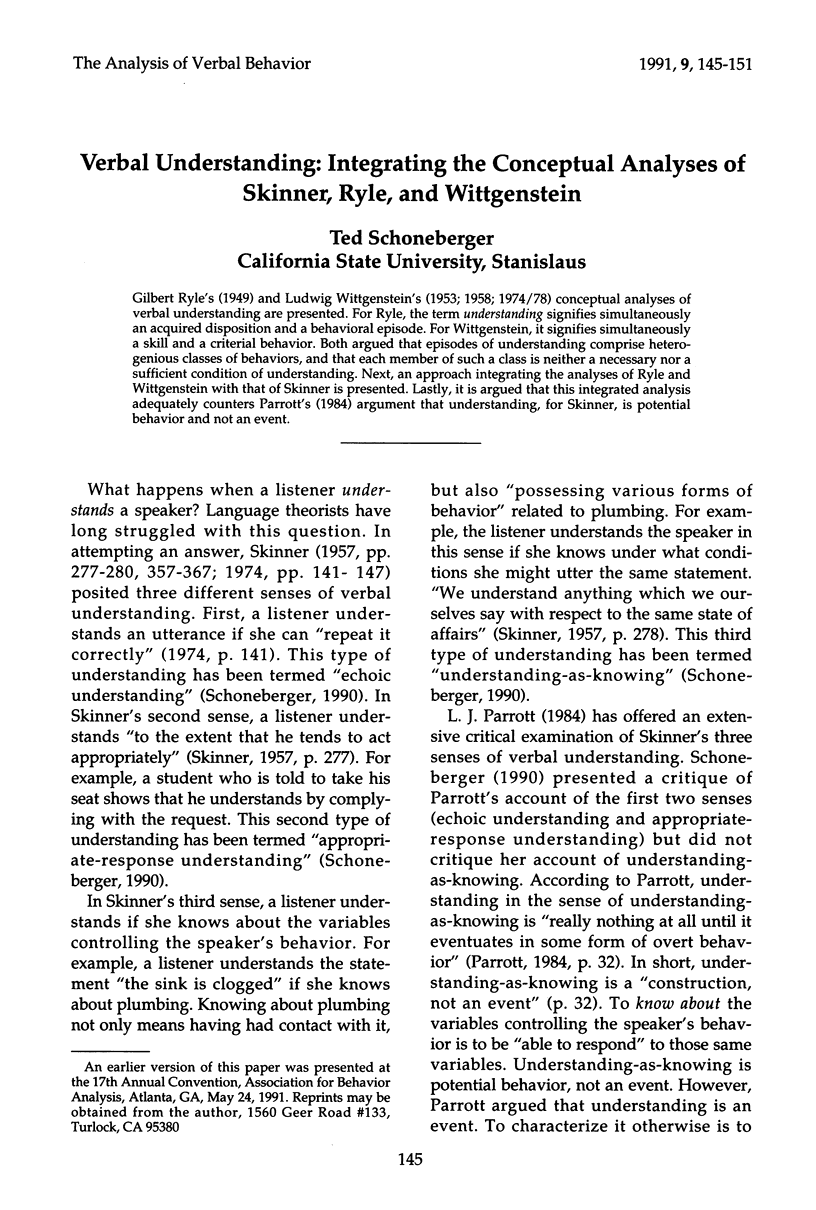
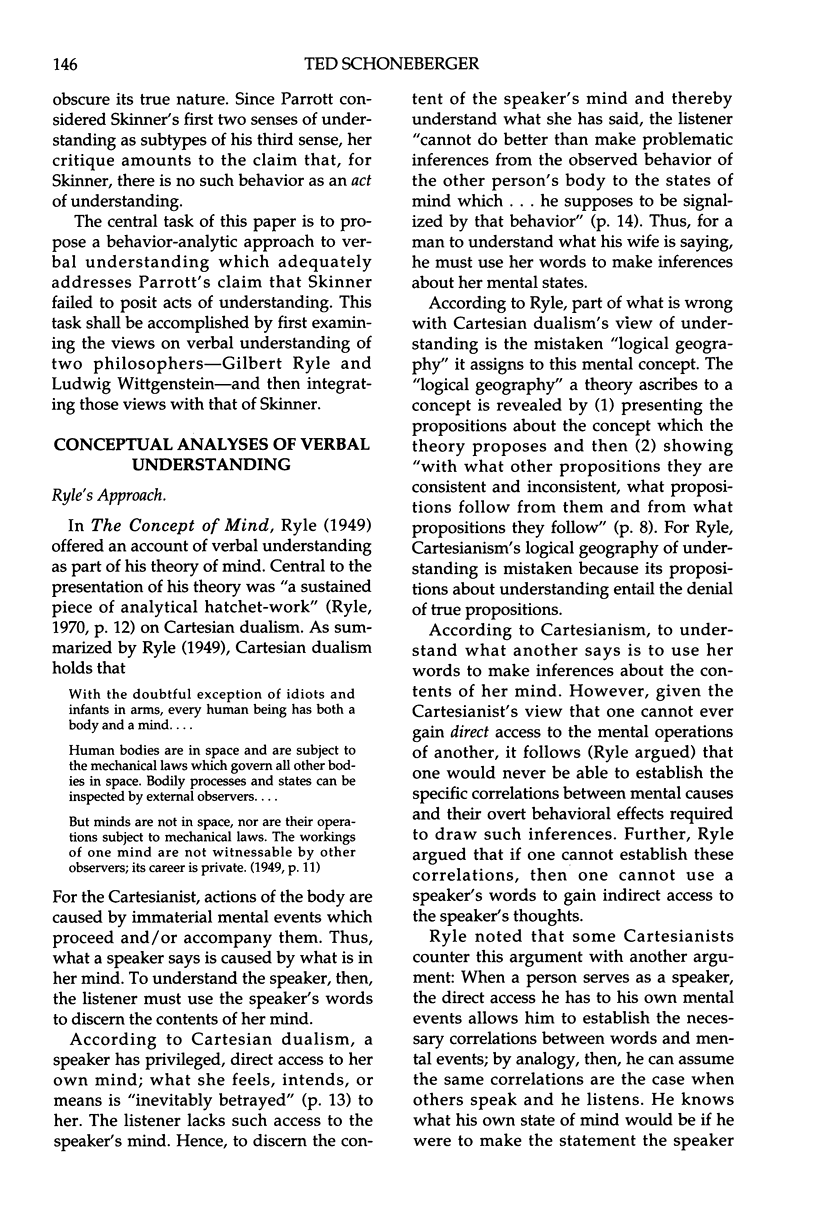
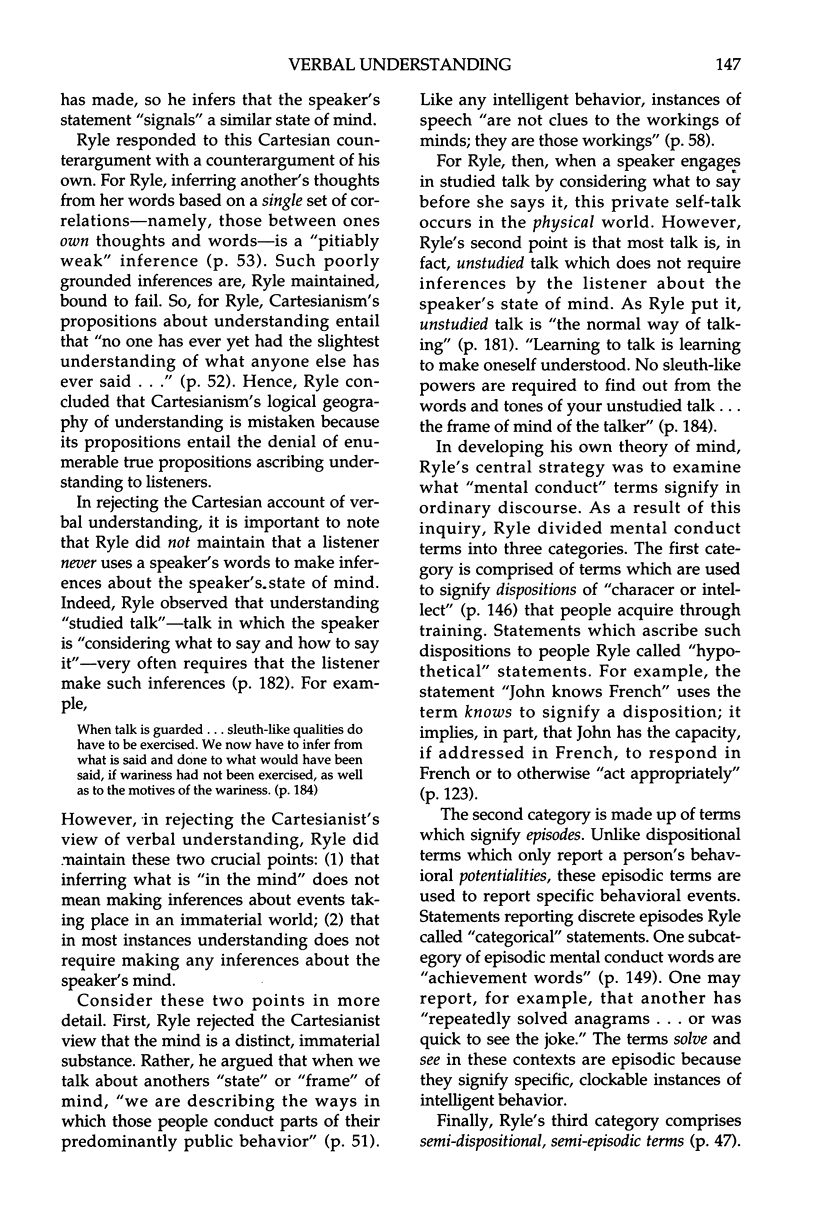
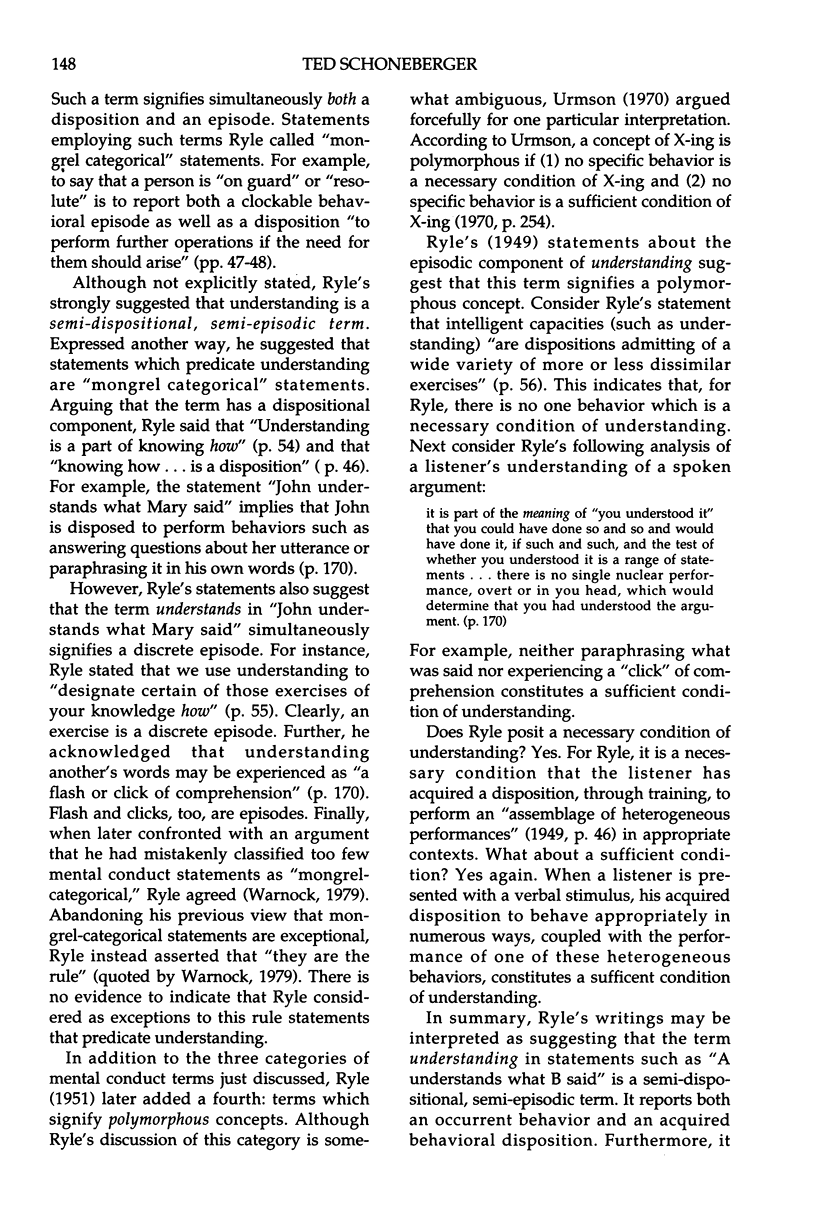
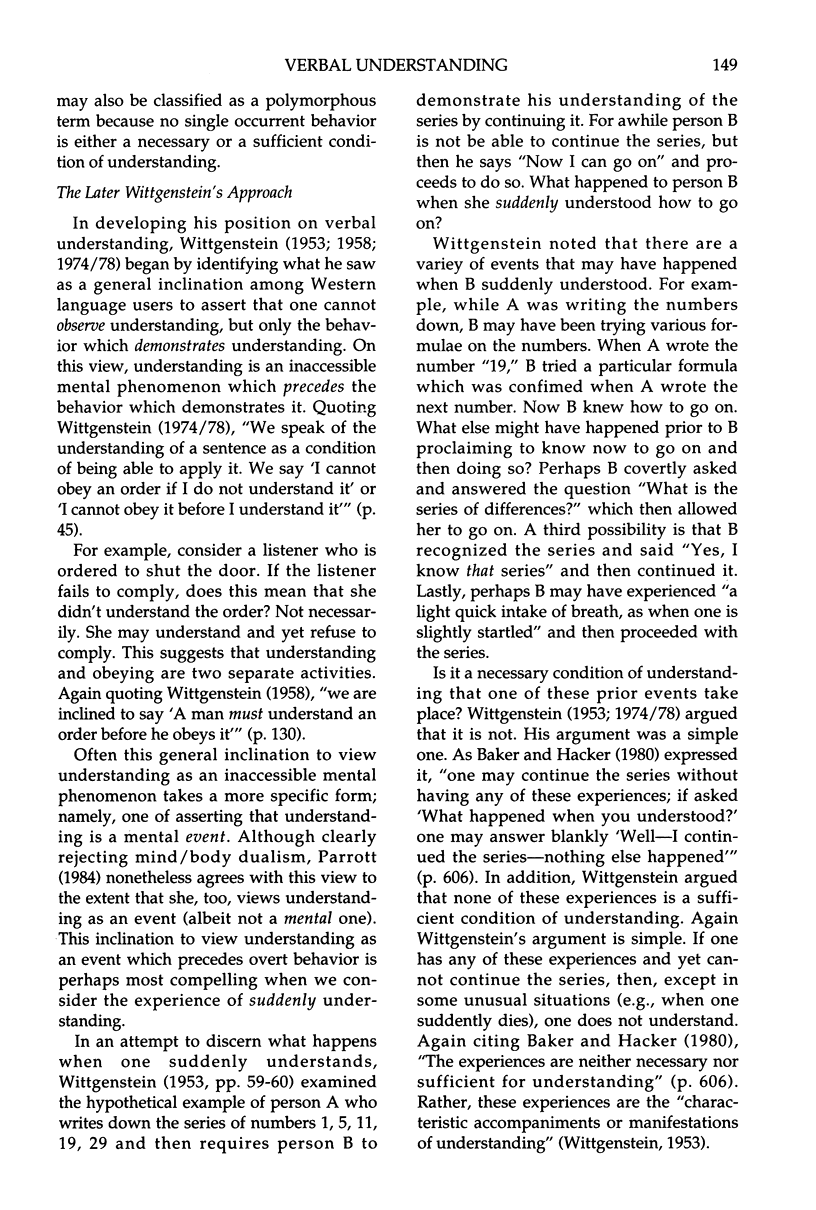
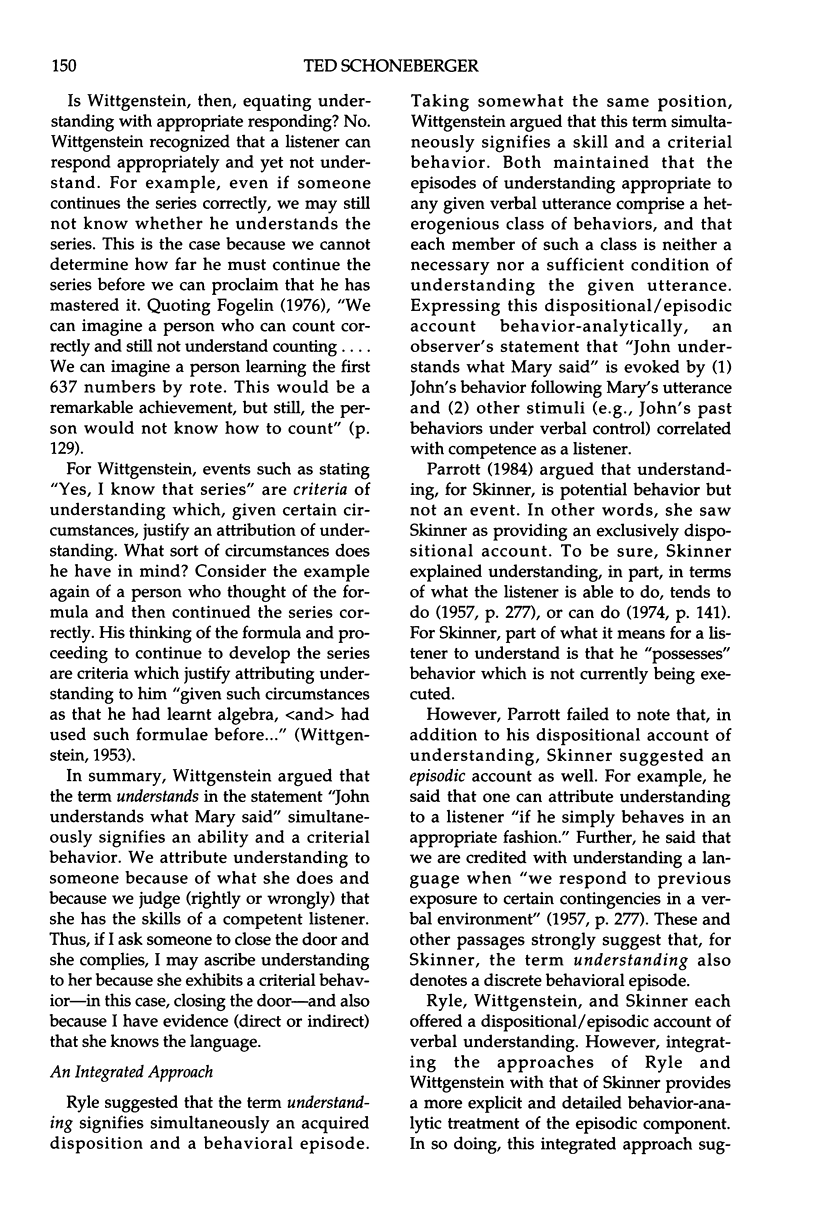
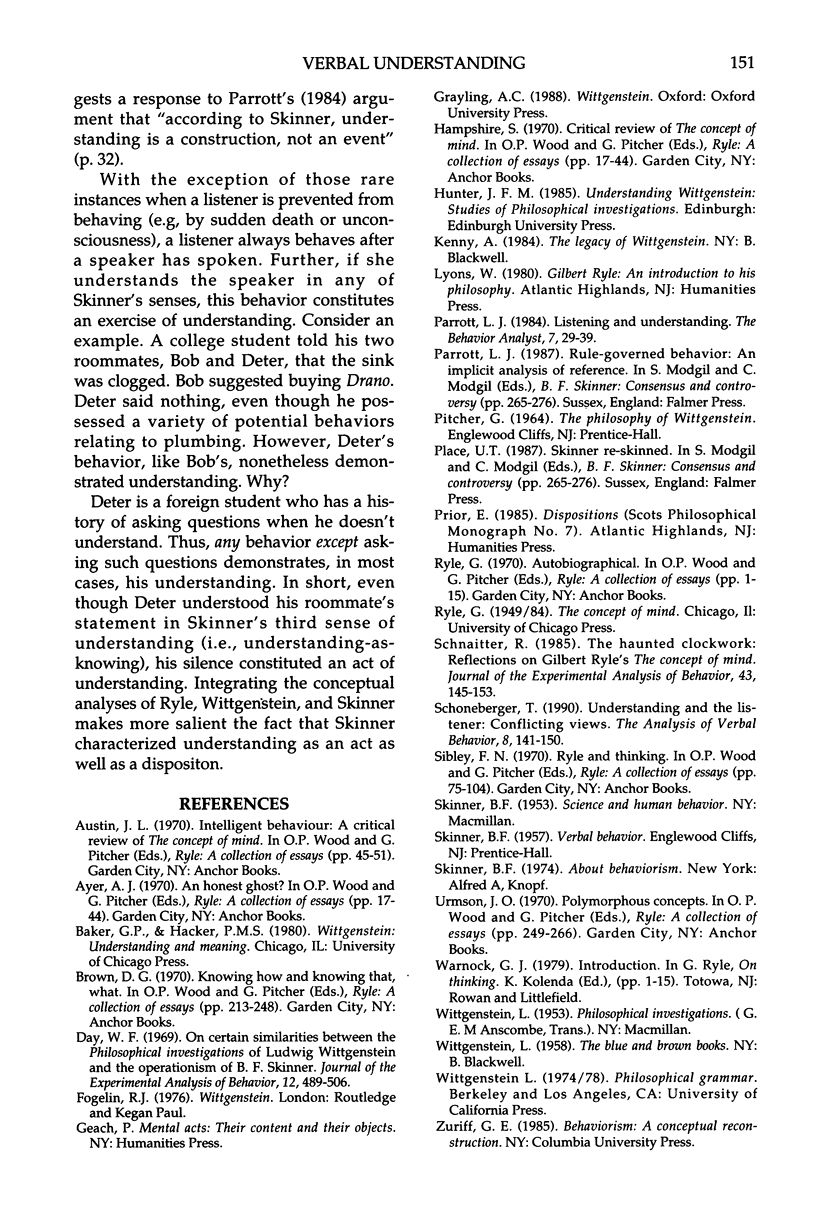
Selected References
These references are in PubMed. This may not be the complete list of references from this article.
- doi: 10.1901/jeab.1969.12-489. [DOI] [PMC free article] [Google Scholar]
- doi: 10.1901/jeab.1985.43-145. [DOI] [PMC free article] [Google Scholar]
- Parrott L. J. Listening and understanding. Behav Anal. 1984 Spring;7(1):29–39. doi: 10.1007/BF03391883. [DOI] [PMC free article] [PubMed] [Google Scholar]


